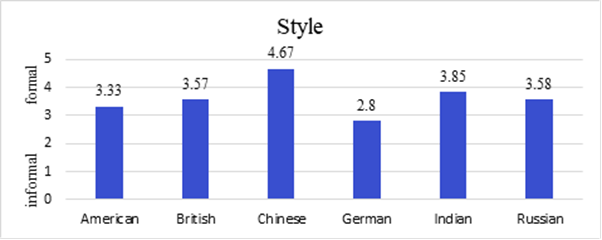Uncovering the key factors influencing negotiation behaviour
By Elizaveta Lapina
Exploring the extent of cultural influence on negotiation processes, along with the role of personality traits, academic background, and religious affiliation.
Regardless of one’s profession or status – be it a businessperson, teacher, salesperson, or diplomat – the process of negotiation is inevitable. Negotiations are strongly influenced by cultural differences that shape the way we communicate, perceive situations, and resolve disagreements.
My research specifically examined the intersection of cultural differences, personality traits, field of study, and religious affiliations and their influence on negotiation styles. The main purpose was to identify how the most important cultural differences influence negotiation behaviour. A better understanding of cultural differences can help us better appreciate effective negotiation strategies. To investigate this, I designed and surveyed 107 university students.
It is already known that some cultures favour direct communication, while others lean towards a more indirect approach. Attitudes towards time and punctuality also differ from culture to culture. More importantly, each culture has its own set of norms and values that determine what is considered fair or acceptable during negotiations.
In academic circles there exists lively debate around two main points of view: whether culture is the primary factor influencing negotiation style, or if it is just one of several factors. Research has shown that cultural differences complicate negotiations, often leading to misunderstandings. However, some scholars argue that culture is just one piece of the puzzle, with individual differences, power dynamics, and situational factors also playing a significant role.
Through my research, I surveyed university students of different nationalities, fields of study and beliefs, both online and offline. Despite initial interest, some online participants forgot to complete the questionnaire. On the contrary, face-to-face data collection proved to be more effective. The bulk of the data was gathered from the British Library, resulting in the respondents being surveyed direct.
The survey built on previous research and explored negotiation styles and factors such as cultural background and personality traits. After collecting responses, statistical techniques were used to organise and analyse the data, to understand key characteristics and significant differences, or relationships between variables.
From the survey and wider analysis of the topic, I concluded that culture is not a major factor in negotiation, although cultural differences do influence the negotiation process. For example, people consistently chose either high-context or non-context negotiation styles, emphasising the importance of these styles in decision-making processes. High-context cultures, such as in Arab countries and China, tend to favour indirect communication, place a high value on context and hierarchy, and value long-term relationships. Conversely, low-context cultures, such as those in the US and Germany, prefer direct and clear communication that focuses on short-term relationships. Furthermore, evidence found that American students exhibit a higher propensity to take risks in negotiation, while their German counterparts were more risk-averse. Chinese students favoured a more formal negotiation style, while German students tended to prefer a more informal style.

The study showed that psychological characteristics had the most significant impact on the negotiation process. Emotional stability, in particular, significantly influenced two types of negotiation behaviour: communication style and time sensitivity.
Those with higher emotional stability often used indirect communication and were time-sensitive, preferring to close the deal quickly. Extraversion and agreeableness significantly influenced their approach to negotiations. Individuals who scored higher on these qualities tend to take a more emotional approach to negotiations.
Openness to experience and emotional stability were also key predictors of a rational approach to negotiation. Individuals who scored higher on these qualities often favoured rational tactics. Openness to experience also significantly influenced preference for more generalised forms of agreement. Extraversion and agreeableness significantly predicted risk-taking propensity. More extroverted individuals were likely to take more risk, while more accommodating individuals tend to be risk averse.
The research also found that a person’s field of study, religion, and gender had some influence on negotiation tendencies. Business and economics students showed a significantly higher tendency to take risks in negotiation compared to other majors. Males, meanwhile, were more inclined to take a rational approach while females were more inclined to choose an emotional approach.
In conclusion, the study suggests that negotiation behaviour is influenced by many overlapping factors. Although culture plays a role, its influence is neither uniform nor deterministic. Psychological characteristics are more significant in predicting negotiation behaviour. There are, however, gaps and limitations in the current findings. By applying a nuanced approach and dynamic methodology, future research can provide a clearer picture of the cultural complexities of negotiation behaviour. An improved appreciation of this will enable negotiators to navigate cross-cultural interactions more easily in an increasingly globalised world.
Loughborough University London
Blogging everything that’s happening at Loughborough University London